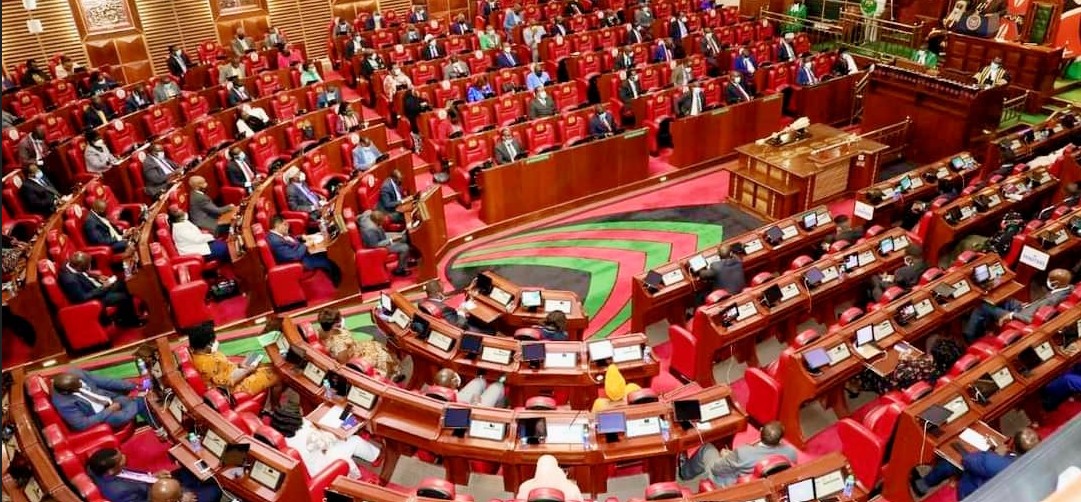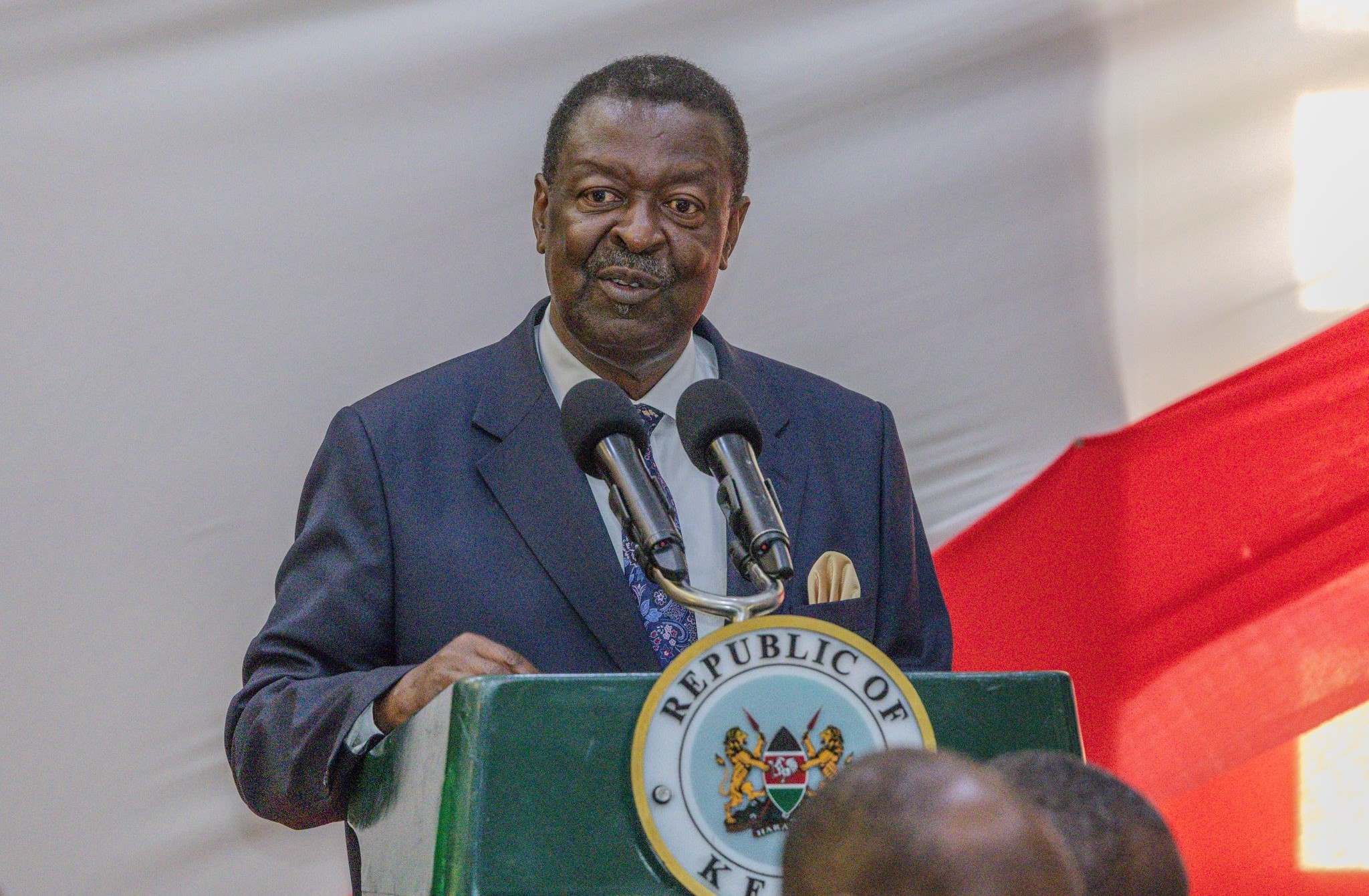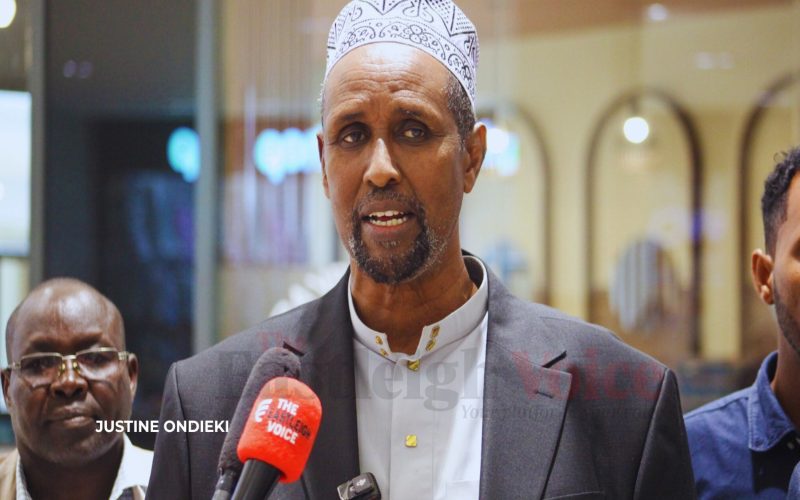Three-judge bench to hear petition challenging National Assembly over unauthorised borrowing

The petitioners argue that the borrowing was conducted outside the bounds of the law and that Parliament exceeded its authority in approving certain amendments without proper public oversight.
A three-judge High Court bench has been formed to hear a petition challenging the legality of amendments made by the National Assembly to the Public Finance Management Act and government borrowing between 2014 and 2025.
The petitioners argue that the borrowing was conducted outside the bounds of the law and that Parliament exceeded its authority in approving certain amendments without proper public oversight.
More To Read
- Kenya spends Sh7 of every Sh10 collected on debt repayment - report
- Kenya’s public debt hits Sh11.81 trillion as Treasury pledges prudent fiscal management
- Kenya's domestic debt interest payments soar by Sh98 billion in a year
- Government overshoots domestic borrowing target by Sh591 billion, squeezing households, businesses
- Treasury given 60-day ultimatum to deliver debt management framework
- Debt: Senators expose how counties are driving contractors into bankruptcy
The bench, empanelled by Chief Justice Martha Koome, will be led by Justice Francis Gikonyo and also comprises Lady Justice Roseline Aburili and Justice Moses Ado Otieno.
Busia Senator Okiya Omtatah, alongside eight other petitioners, filed the petition against the National Assembly and 22 other respondents, including former President Uhuru Kenyatta, the Attorney General, National Treasury Cabinet Secretary, the International Monetary Fund (IMF), the Office of the Controller of Budget, and the Central Bank of Kenya (CBK).
The petition questions the legality of government borrowing between the 2014/2015 and 2024/2025 financial years.
In an affidavit before the court, the National Assembly asked the judges to strike out the petition, arguing it was premature.
“The petitioners have not exhausted all other Constitutionally stipulated legal redress mechanisms before approaching the Court,” the Assembly said.
The House highlighted that the Constitution and the Public Audit Act provide mechanisms, including powers for the Auditor General to investigate public accounts in the event of complaints.
“The petitioners had not lodged their complaints with the Auditor General prior to filing the current petition in Court,” the National Assembly noted.
The Assembly further cited Article 119 of the Constitution, which allows citizens to petition Parliament to request investigations or audits of public funds, an avenue the petitioners have yet to pursue.
“Therefore, the petitioner’s attempt to bypass those mechanisms strips the Court of jurisdiction to decide on the issues raised in the petition,” reads the affidavit.
The National Assembly also pointed to its prior work on public accounts, including a comprehensive report tabled on November 30, 2023 by the Public Accounts Committee (PAC) reviewing the Auditor General’s report on the financial statements of National Government Ministries, Departments, and Agencies (MDAs) for the financial year 2020/2021.
Among its recommendations, the PAC directed the Auditor General to undertake a forensic audit of the public debt portfolio and submit the findings to Parliament.
“Consequently, the very subject matter of the petition on legality of Kenya’s debt portfolio is currently under review by constitutionally mandated bodies; that is, Parliament and the Auditor General,” the Assembly said.
The National Assembly argued that allowing the petition to proceed would deny the Court the benefit of the “Constitutional dispute resolution framework and render the matter as non-justiciable.”
The three-judge bench is expected to give directions on the hearing dates for the petition.
Top Stories Today
Reader Comments
Trending








































